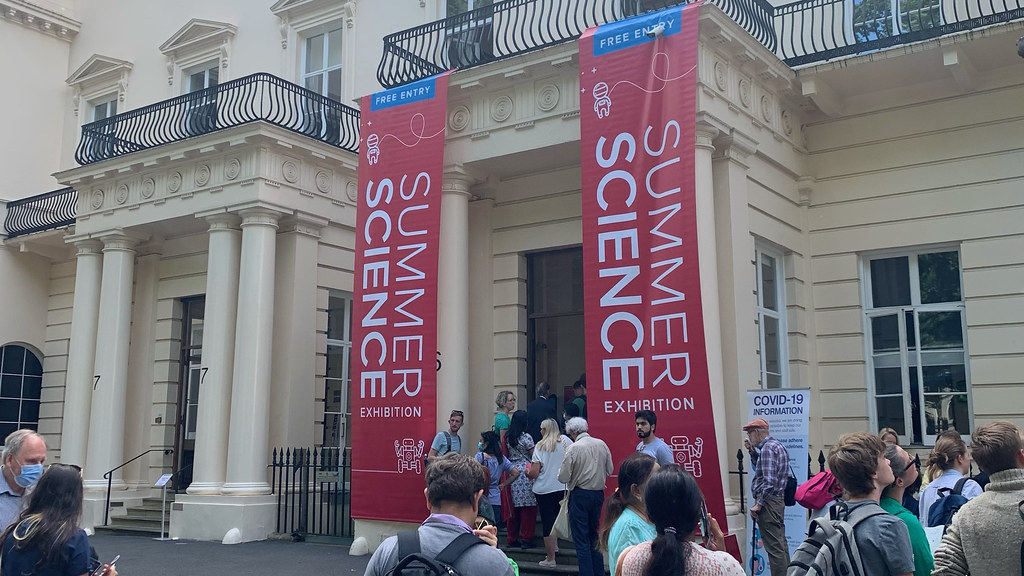A team of researchers from our Department of Psychology exhibited at last week’s Summer Science Exhibition hosted by The Royal Society in London.
Presenting their innovative research into similarities and differences between people’s values, the team, which included Head of Department Professor Greg Maio, Dr Lukas Wolf and Dr Paul Hanel (Essex), asked participants to play their online game ‘Discover Values’. The Bath team also included: Sam Taylor, Martha Fitch Little, and Elizah-Marie Hurst.
This game was designed by the team to allow people to find out about their own values, but also to test how close to reality people’s estimates of value similarities between groups in society are. Does the common stereotype that we live in a deeply divided society hold true?
Players are shown various groups that we often compare with each other – for instance, women and men, young and old, and Conservative and Labour voters – and players subsequently guess how similar or different these groups are in terms of their values.
The results overwhelmingly reveal that we typically underestimate, by a substantial extent, how much of our values are shared by others. Many visitors expressed surprise and appreciated the positive message of the findings. By playing the game, the research team want to challenge public stereotypes.
Play the values game and contribute to the team’s research
Speaking after the event Professor Maio explained: “The Royal Society put together an impressive exhibition, organised superbly with incredibly exciting examples of cutting-edge science. The most impressive aspect was the interactive nature of the exhibits, although this also created a challenge for us. We needed to plan activities that could entice interest in our discoveries about social values while being placed amidst exhibits about topics such as nuclear fusion and berry-powered solar cells.
“For us it was a pleasure to share our Values Game with people of all ages. As they played, we could see their reactions as they learned about their values and saw more and more evidence about the values of other people. This helped to start some great conversations about the social and psychological underpinnings of values and the extent to which they are shared by diverse people.”
Player feedback from The Values Game, including from young children who interacted, included:
It has renewed my faith in humanity. Thank you!!!”
The exhibition is awesome and really fun I wish it would never end”
Very insightful and somewhat reassuring”
Lots of interesting issues to think about, thank you”.
Cosmologist Professor Carlos Frenk, Chair of the Royal Society’s Public Engagement Committee, said: "The importance of science to society, and in our daily lives, has never been as much in evidence as in the past two years. The exhibition explores the science at the heart of some of the biggest issues of our time.
"We carefully curated a selection of 16 brilliant, interactive exhibits on a variety of topics, from identifying and tackling disease, to understanding how creatures large and small travel the ocean, and designing the green energy technologies that will power our cities in the future.
"The exhibition offered a rare opportunity to meet and engage with the researchers who are playing a leading role in shaping our future.''

